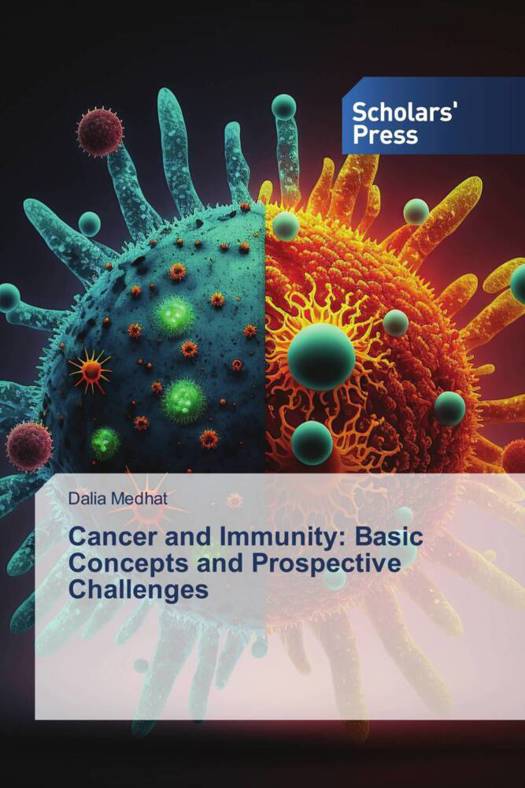
- Afhalen na 1 uur in een winkel met voorraad
- Gratis thuislevering in België vanaf € 30
- Ruim aanbod met 7 miljoen producten
- Afhalen na 1 uur in een winkel met voorraad
- Gratis thuislevering in België vanaf € 30
- Ruim aanbod met 7 miljoen producten
Zoeken
€ 50,45
+ 100 punten
Omschrijving
Cancer and the immune system share a complex relationship, where immune cells play dual roles in tumor progression and suppression. The immune system can detect and eliminate nascent tumor cells through immune surveillance, primarily driven by T cells, natural killer cells, and antigen-presenting cells. However, cancer often evades immune control through mechanisms such as immune checkpoint inhibition, regulatory T cell activation, and secretion of immunosuppressive factors.The advent of immunotherapy has revolutionized cancer treatment, employing strategies like immune checkpoint inhibitors, adoptive T cell therapy, and cancer vaccines. Despite significant successes, challenges remain, including immune resistance, treatment toxicity, and limited efficacy in certain cancers.Future directions emphasize personalized medicine, combination therapies, and the development of novel biomarkers to predict treatment response. Understanding tumor-immune interactions at molecular and cellular levels is key to overcoming existing challenges and harnessing immunity for more effective cancer therapies.
Specificaties
Betrokkenen
- Auteur(s):
- Uitgeverij:
Inhoud
- Aantal bladzijden:
- 68
- Taal:
- Engels
Eigenschappen
- Productcode (EAN):
- 9783639662092
- Uitvoering:
- Paperback
- Afmetingen:
- 150 mm x 220 mm

Alleen bij Standaard Boekhandel
+ 100 punten op je klantenkaart van Standaard Boekhandel
Beoordelingen
We publiceren alleen reviews die voldoen aan de voorwaarden voor reviews. Bekijk onze voorwaarden voor reviews.











